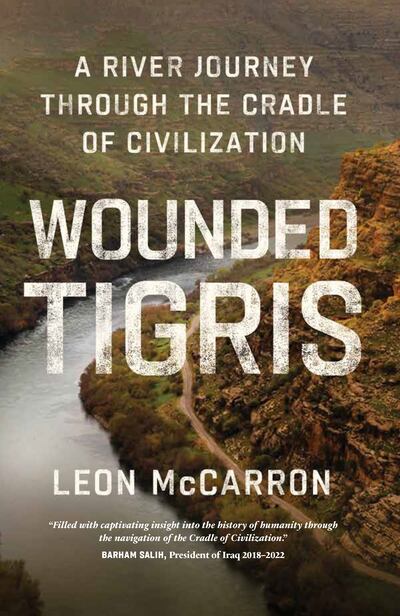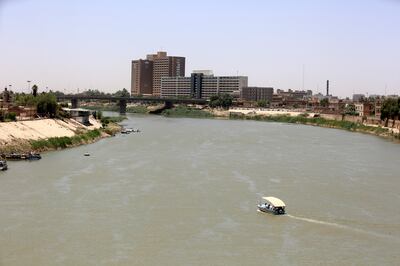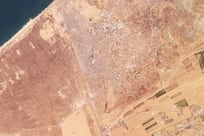When Leon McCarron told people he was planning to sail the length of the Tigris from source to sea, he received divergent responses.
An Iraqi warned him that his native land was “a boiling cauldron”; any travel through it would be dangerous for a foreigner. Someone else echoed this advice – but only up to a point. “It is of course an insane undertaking, but those are the only ones worth doing," they added.
McCarron, a Northern Irish writer and explorer who lives in Iraq, has done his fair share of extreme undertakings, including walking across China and trekking about 1,610km through the Rub Al Khali – the largest sand desert on earth, also known as the Empty Quarter. His Tigris expedition – through the mountains of Turkey, across north-east Syria and into the beating heart of Iraq – was arguably his most challenging. Not only was it arduous, it was also dangerous. His account of it, Wounded Tigris, makes for compelling and insightful reading.
McCarron embarked on what he calls a journey in three parts, from highlands to foothills to floodplains. Used to travelling alone, on this trip he had a crew, which included British photojournalist Emily Garthwaite, Swiss filmmaker Claudio von Planta and various fixers, interpreters and environmental activists.
The team began at the river’s source in Birkleyn, Turkey, and followed its course for 71 days. The majority of the time they travelled by boat or raft but at certain stages they were forced to come ashore and continue by car – occasionally accompanied by members of the Iraqi army. Whether on the water or dry land, McCarron’s journey proved eventful.

There were tourist trail attractions to see, from cave paintings of the Assyrian king Shalmaneser III to Unesco World Heritage sites. In Diyarbakir, Turkey, McCarron was enchanted by dengbej, the Kurdish sung-spoken oral storytelling.
But in McCarron’s book, the scenic soon gives way to the tragic. The team visited “drowned” villages, such as Hasankeyf, Turkey, which was flooded as part of a hydroelectric dam project. They toured a camp for displaced people in Kurdistan, which is home to around 14,000 Yazidis, including a young musician who ran a woman’s choir to help keep her music and culture alive.
McCarron felt the legacy of ISIS at routine intervals, witnessing communities ravaged from hostilities or trying valiantly to recover from them, and visiting sites that had been ransacked and looted. Sometimes he passed through areas where militants remained.
The team endured many hardships. They were ground down by the heat and gastroenteritis. They navigated constant checkpoints. They were intimidated by gun-toting militias. On one occasion they were shot at. McCarron notes that it became overwhelming to see “the layers of trauma and tragedy that Iraqis have suffered, day after day after day”.

McCarron’s narrative is at its most captivating when he prioritises people over place. He recorded the testimonies of a range of individuals, from farmers to soldiers, boatmen to fishermen, activists to archaeologists.
One man told him he fought ISIS with the army, but when he received two months' pay instead of 12, he joined the paramilitary organisation Popular Mobilisation Forces, also known as Hashd Al Shaabi, instead. McCarron talked to a diver – “the River Sheikh” – tasked with bringing up bodies. In Mosul, everyone McCarron encountered had a story – “and every story was enough to break your heart".
Just as heartbreaking are McCarron’s descriptions of a once-majestic river in crisis. He saw for himself how conflict, change and construction have polluted the Tigris or transformed the flowing waterway into “an unrecognisable mess of trickling channels".
Wounded Tigris is peppered with sobering moments but it is also filled with joyous episodes involving adventure, discovery and warm hospitality. McCarron has expertly chronicled what was both a punishing, life-threatening ordeal and a rewarding, life-enhancing experience.
Wounded Tigris: A River Journey Through the Cradle of Civilization is out now






